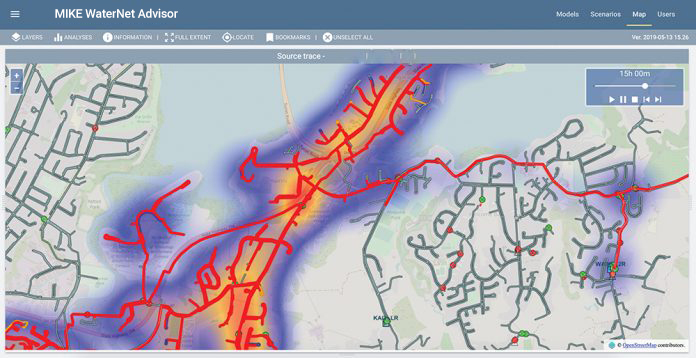In this issue of the Water Industry Journal, we speak to Jan Krejcik, Group Sales Executive of Urban Water at DHI. Jan provides insights into the challenges ahead for the water industry and explains why modelling and application of digital twins has a role in tackling them.
Please provide an overview of your role and remit?
“My role in DHI is to lead business growth and includes the implementation of the sector strategy in key territories, coaching and leading local sales managers and contributing to global marketing. But most of all, it is about face-to-face time with our key customers and partners to understand their needs and offering our technology and expertise to help them.”
Tell us a bit about the business
“We believe that we are the first people to call when you have a tough challenge to solve in a water environment. Our journey to globalisation began back in the nineties and it brought us to where we are today: a truly global company operating worldwide and around the clock. Our knowledge represents the culmination of 50 years of dedicated research and real-life experience from more than 140 countries and our motivation is to make this knowledge globally accessible to all of our clients and partners.”
The provision of safe drinking water is of vital importance, and yet is perhaps something that’s taken for granted. Could you outline some of the challenges the water industry faces in ensuring drinking water quality?
“In countries where instant access to clean water is taken for granted the biggest challenges are ageing assets and the long term self-sustainability of the water supply systems. Whilst the industry faces an increasing demand for improved water quality too.”
“At the same time, the industry is experiencing a decrease in consumption per capita, which makes it difficult to keep water pricing fair whilst continuing to invest in the infrastructure at the required level. Together with the increase in demand for timely and accurate information accessible via the media and social networking, there are a lot of pressures placed on those who are responsible for the delivery of water.”
Why is what DHI does important in the field of drinking water?
“At DHI, we were one of the first pioneers developing digital solutions representing the physical reality of the water environment using mathematical models. Our products deepen understanding of how physical systems work, thereby helping with key decision-making. We provide the knowledge and means for the industry to make decisions in an appropriate time frame that are cost-effective, fair and right strategically.”
How is DHI currently helping the water sector to improve drinking water quality?
“The translation of great ideas into a great product that makes things easier for our clients is part of our DNA. Through design thinking and a continuous dialogue with our customers, we unlock straightforward, consumer-friendly solutions and products. Like MIKE WaterNet Advisor, the product that can completely change the way of working with models of water distribution networks.”
What role is there for new technologies? For example, what do you estimate AI can offer the sector in terms of the quality of drinking water?
“Self-learning algorithms or machine learning with big data allow businesses to make better and faster forecasts of, for example, water demands and/or actual water consumption and thus help to operate the water distribution systems more dynamically and efficiently.”
What particular advantages do your products bring to the water industry?
“The modelling of water systems and processes is an industry standard today, but imagine having access to information about water quality in a network from anywhere, anytime, using any device. Imagine you could choose to operate your pumps, valves or a treatment plant from anywhere, anytime, using any device. That’s what MIKE WaterNet Advisor provides. It enables teamwork in real time where ever your team, network or data are in the world, for the benefit of your customers and your business.”
What in your estimation are the long term challenges, and also opportunities, facing the water industry in respect to drinking water – and how can DHI help respond to these challenges and opportunities?
“Looking forward, the overriding challenge for the water industry will continue to be to keep and increase the trust of people in drinking tap water. Hand in hand with this, come the enormous challenges presented by climate change, including water scarcity and water quality. As an industry, we need to drastically reduce water losses and build more resilient networks in order to cope with increasing urbanisation and the growth of cities.”
“Providing opportunities for an improved and expanded information base, our new technologies enable businesses to make more accurate, evidence-based decisions that drive improvements. This is what makes us the first people to call when you have a tough challenge to solve in a water environment.”
Are there any recent business developments or future plans you’d like to share?
“Digital twins in the Cloud. Stay tuned.”




